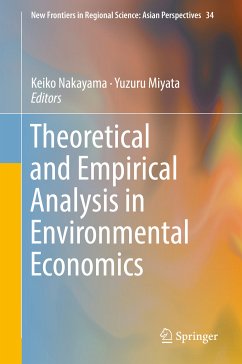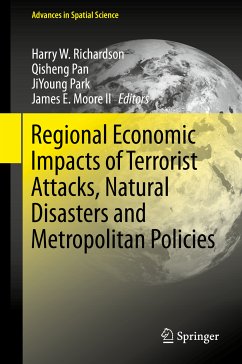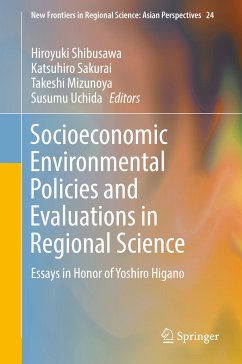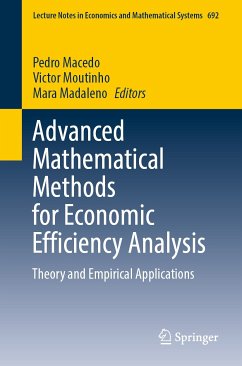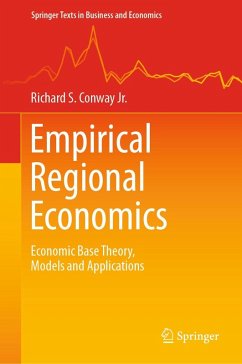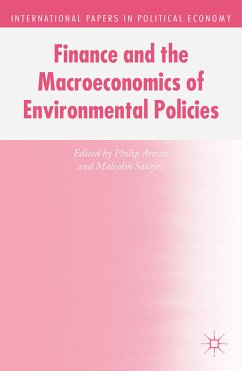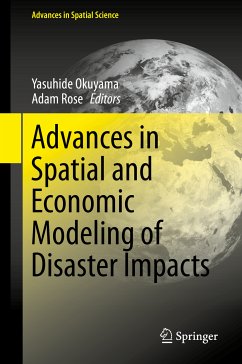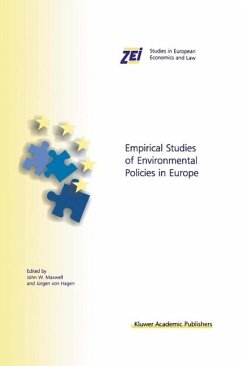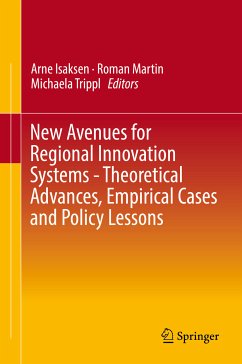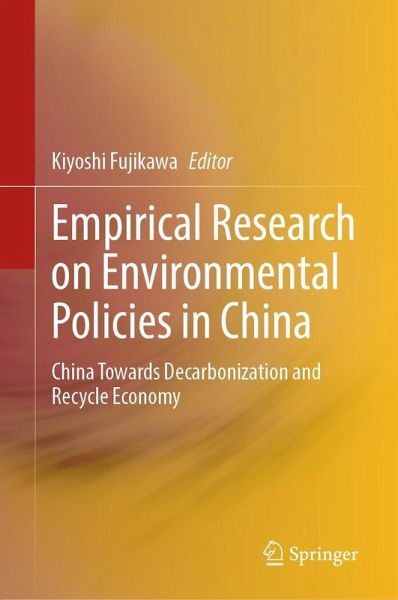
Empirical Research on Environmental Policies in China (eBook, PDF)
China Towards Decarbonization and Recycle Economy
Redaktion: Fujikawa, Kiyoshi
Versandkostenfrei!
Sofort per Download lieferbar
96,95 €
inkl. MwSt.
Weitere Ausgaben:

PAYBACK Punkte
48 °P sammeln!
This book presents an empirical study of the effects of environmental policies on China and its neighboring countries, with a focus on waste and climate policies in China. The two major carbon policies have to do with carbon markets and renewable energy. The authors first examine the effectiveness of the Asian carbon market. Because of the consumption of goods beyond provincial borders, nationwide carbon markets are rather difficult to operate; therefore, a desirable initial allocation in the carbon market is proposed in this book. As for renewable power, its sources have not been fully utiliz...
This book presents an empirical study of the effects of environmental policies on China and its neighboring countries, with a focus on waste and climate policies in China. The two major carbon policies have to do with carbon markets and renewable energy. The authors first examine the effectiveness of the Asian carbon market. Because of the consumption of goods beyond provincial borders, nationwide carbon markets are rather difficult to operate; therefore, a desirable initial allocation in the carbon market is proposed in this book. As for renewable power, its sources have not been fully utilized owing to a regional mismatch of supply and demand, so optimal locations of renewable energy are shown.
The book also contains an analysis of the environmental and economic impacts of changes in resource circulation in East Asia. Although motorization is advancing rapidly, the vein industry for recycling used cars has not progressed. The authors estimate the amount of materials from used cars including new energy vehicles (electric and fuel cell vehicles) and propose desirable policies for used vehicles. East Asia is interdependent with respect to carbon and waste as well as the economy. China has regulated the import of waste recently and has started recycling its own wastes, putting pressure on neigboring countries to recycle their waste domestically. The authors estimate the environmental and economic impacts of such policy changes.
Dieser Download kann aus rechtlichen Gründen nur mit Rechnungsadresse in A, B, BG, CY, CZ, D, DK, EW, E, FIN, F, GR, HR, H, IRL, I, LT, L, LR, M, NL, PL, P, R, S, SLO, SK ausgeliefert werden.



